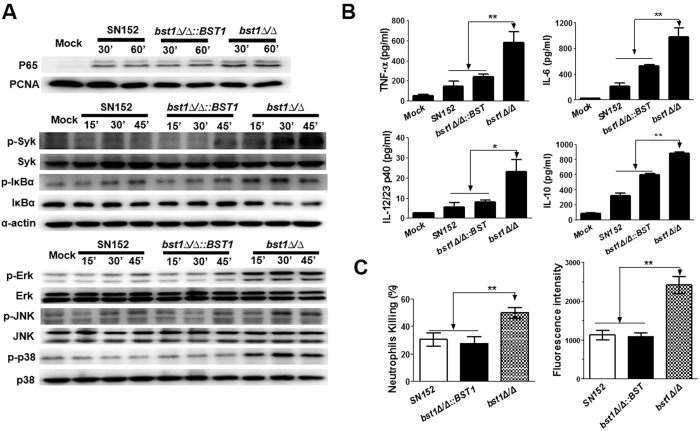Figure 5. BST1-deficient C. albicans could be recognized by host innate immune cells.
(A) Bst1Δ/Δ mutant strain induced NF-κB and MAPK activation and inflammatory responses in macrophages. Thioglycollate-elicited peritoneal macrophages were stimulated by UV-inactivated C. albicans yeast SN152, bst1Δ/Δ::BST1, bst1Δ/Δ (MOI = 5) for the indicated times. The nuclear extracts (top panel) and cell lysates (middle and lower panel) were analyzed by immunoblotting with the indicated antibodies. Mock, unstimulated macrophages. (B) ELISA of TNF-α, IL-6, IL-12/23p40, and IL-10 collected from the supernatants of macrophages challenged with UV-inactivated parent (SN152), BST1-complemented (bst1Δ/Δ::BST1), and bst1Δ/Δ null mutant strains for 6 hours. Data represent mean (±SD) of triplicates from one representative experiment of three. *P < 0.05; **P < 0.01 (One-way ANOVA with Bonferroni post-test). (C) Neutrophils killing rates of parent (SN152), BST1-complemented (bst1Δ/Δ::BST1), bst1Δ/Δ null mutant strains determined by incubation them with thioglycollate-elicited neutrophils for 1 hour, and the survival of the C. albicans were counted (left panel). Respiratory burst of neutrophils stimulated by the indicated C. albicans were assayed by detecting the cellular reactive oxygen species production in neutrophils after incubation with C. albicans for 1 hour (right panel). Data represent mean (±SD) of triplicates from one representative experiment of three. *P < 0.05 and **P < 0.01 (One-way ANOVA with Bonferroni post-test).

